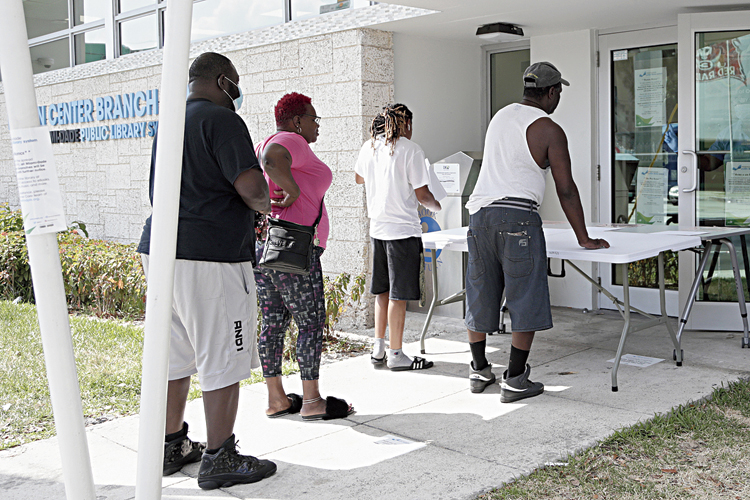Even as political leaders wrangle over how and when to re-start the American economy, the coronavirus pandemic’s devastation became more evident on Thursday with more than 5.2 million workers added to the tally of the unemployed.
In the last four weeks, the number of unemployment claims has reached 22 million — roughly the net number of jobs created in a nine-and-a-half-year stretch that began after the last recession and ended with the pandemic’s arrival.
The latest figure from the labour department, reflecting last week’s initial claims, underscores how the downdraft has spread to every corner of the economy.
“There’s nowhere to hide,” said Diane Swonk, chief economist at Grant Thornton in Chicago.
“This is the deepest, fastest, most broad-based recession we’ve ever seen.”
Layoffs have been imposed across an array of industries: hotels and restaurants, mass retailers, manufacturers and white-collar strongholds like law firms.
Some of the new jobless claims represent freshly laid-off workers; others are from people who had been trying for a week or more to file. “We’re still playing catch-up on multiple fronts,” Swonk said.
Each day seems to bring unwelcome milestones. On Wednesday, the commerce department reported the steepest monthly drop in retail sales since record-keeping began nearly 30 years ago, and the Federal Reserve said industrial production had recorded its biggest decline since 1946.
The mounting unemployment numbers have added to the pressure to ease stay-at-home orders and curbs on business activity.
“A national shutdown is not a sustainable long-term solution,” President Trump told reporters at a briefing Thursday evening, emphasising that it was time for restrictions to be lifted where the virus has been less prevalent.











